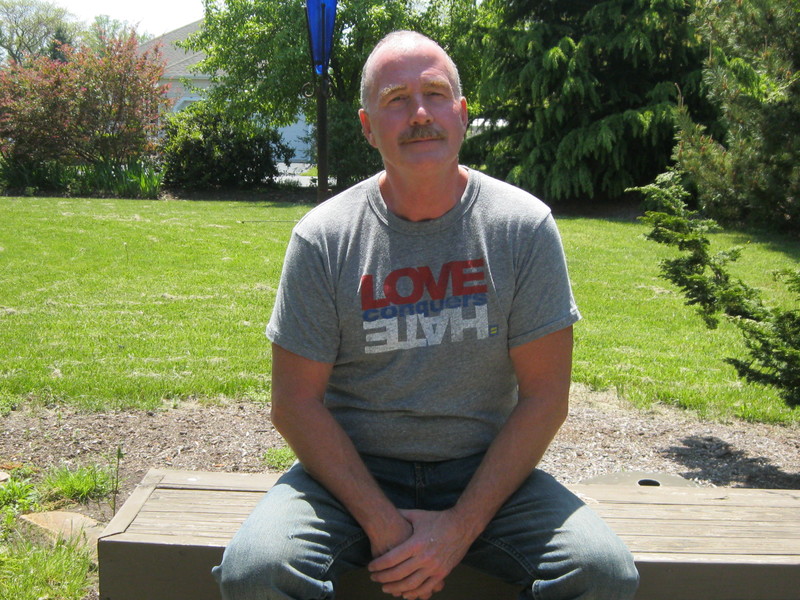Lewes’ Albert Snyder to be featured in PBS documentary
When you’ve endured the death of your son, watched his funeral be protested by the Westboro Baptist Church, fight a three-year legal battle and end up at the center of a major U.S. Supreme Court decision, well, a break may be in order.
That was the case for Albert Snyder, who recently moved to Lewes, as so many do, to enjoy the quiet life.
“I just wanted a change. My kids had grown and they’re living on their own. I had a home in York, Pa. that was quite larger. I thought now’s the time. I love this area. It’s been a good move. I needed that peace and rest,” he said.
Its the past seven years leading up to his move to the Cape Region that will be featured in the PBS documentary “Constitution USA with Peter Sagal,” a four-part series that sees host Sagal traveling around the country examining different aspects of America’s founding document. Snyder's story will be featured in episode two, airing at 9 p.m., Tuesday, May 14, examining the Bill of Rights, with Snyder’s section relating to freedom of speech and his lengthy legal battle against the church.
It all began with tragedy: Snyder’s son, Matthew, 20, was killed in action in Iraq in 2006.
“I remember the night the doorbell rang,” he said. “Two Marines were on the front porch. I knew the minute I saw them, I knew what they were there for.”
Westboro, the Kansas-based church run by the Phelps family known for their picketing of soldiers’ funerals and rabidly anti-gay stance, protested outside Matthew’s funeral and, Snyder said, also posted inflammatory comments about his family on the church’s website before and after the funeral.
Protestors at Matthew’s funeral stood 30 feet from the main vehicle entrance, Snyder said, shouting and holding up signs with homophobic slurs.
“They created a circus at this funeral. All we wanted to do is bury Matthew. They showed up before and left when the service started,” Snyder said.
When he noticed that Westboro was doing similar things to other military families, Snyder asked his attorney if he had any legal recourse. That led Snyder to attorney Craig Trebilcock, who was initially hesitant to take the case because of the hurt it could put Snyder through. However, Snyder decided to press on, and the case was heard by Judge Richard Bennett of the U.S. District of Maryland.
Snyder won a $10 million judgment for punitive damages against the Phelps’ and the church. The Phelps’ appealed to the U.S. Court of Appeals for the Fourth Circuit in Richmond, which overturned the original verdict on free speech grounds.
“They did not want to look at anything other than the picketing. This wasn’t just about the picketing. This was about what they did before, during and after Matt’s death. Even in Judge Bennett’s post-opinion he said that this was not a case of free speech. This was a personal attack and harassment on a private family,” Snyder said.
Adding to the indignity, Snyder was ordered by the Fourth Circuit Court to pay the Phelps’ $16,000 in legal fees, which Snyder said he has no intention of paying. He said Fox News Channel personality Bill O’Reilly has offered to pay the cost.
Snyder appealed to the Supreme Court, which heard the case in October 2010.
“Unfortunately, they were the same as the Fourth Circuit, they didn’t want to hear the whole case, they just wanted to look at the picketing, which we knew would be an uphill battle,” Snyder said.
While the Supreme Court ruled 8-1 in favor of Westboro, Snyder said the upside was that since then, states have begun enacting laws designed to restrict military funeral picketing
“I lost in the courts, but in the end, I won. I accomplished what I set out to do,” he said, adding that his situation also made people more aware of the church and what they do.
“Westboro is probably the most hated group of people in this country,” Snyder said.
He said he was a bit wary when PBS approached him about a documentary on the Constitution, believing that people might find it boring. After seeing a preview of his episode however, Snyder said he was very happy with how it turned out.
In addition to the PBS show, Snyder is working on a book telling his story, although he has no timeline for when it will come out. He has also become an advocate for veteran’s rights and hopes some of the proceeds from his book will go towards raising awareness of veterans’ causes.
“I hope my son is proud, because that’s what this whole thing has been about,” Snyder said. “Hopefully his death made a difference.”

















































